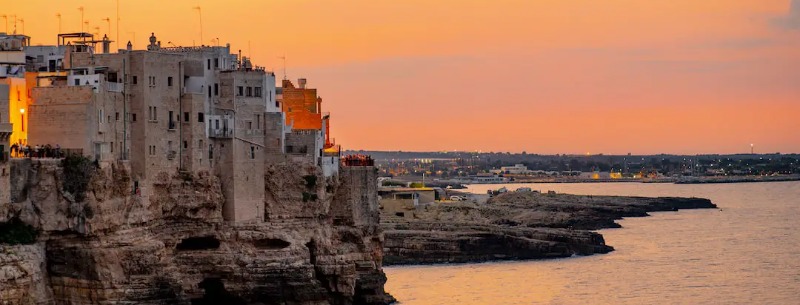Discover Puglia – 6 Day Itinerary
Join chefs and foragers on their daily tour of the countryside and food markets where local artisans, fishmongers, cheesemakers, butchers, and farmers are masters of turning humble ingredients into the mouth-watering dishes known as “la cucina povera” (food of the poor). Visit artisan olive mills where home-produced oil is lavished in golden abundance on everything, and build up a thirst cycling along the breezy Adriatic coast for a wine tasting on a traditional Lampara boat. Then, cross over to Basilicata, the “arch” of the boot, and you’ll find an entirely different landscape with its own customs, culture, and incredible mystery.
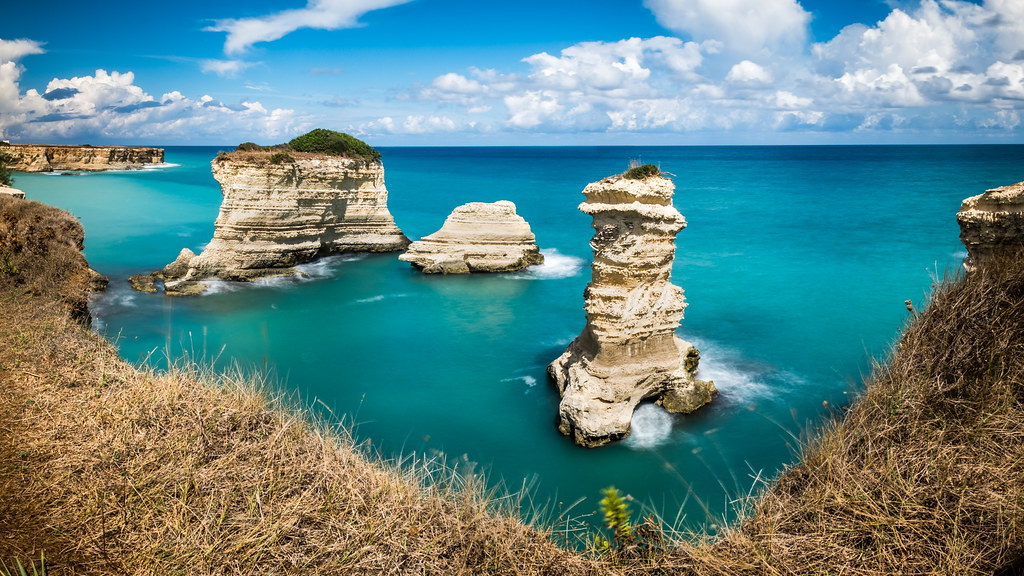
Highlights
- Private Locally Farmed Dinners
- Ride Assist Bike Tour Through the Valle d’Itria Wine Route
- All About Puglia’s Mouth-Watering Cheese
- Scenic Picnic Lunches and Tastings
- A Peak into the World of Lecce’s Palaces and Art Scene
Vineyards & Wineries
- Cantina Moros Di Claudio Quarta
- Sarolo Organic Vineyard
- Tenuta Macchiarola
- Polvanera Organic Winery
- Enoteca Dai Tosi
Day 1: Awe-Inspiring Masseria and the City of Lecce
You will be picked up in Bari at 9.30 in the morning to be transferred to our first awe-inspiring masseria retreat outside of Ostuni to settle for 2 nights. After check-in and lunch, Lecce will sweep you off to your first local experience – an olive oil tasting at a thousand-year-old grove, followed by a fascinating history lesson on regional olive oil production and a picnic lunch. In the afternoon, a personal tour guide in Lecce will take us behind the city’s closed doors on a tour of private palaces and then pass us on to a modern papier mache master for an art scene tour. We will then have our meet-and-greet dinner back at the hotel, spoiled by a local recognized chef.
Taranto
To start the day, get a coffee in Taranto, seated on a little terrace by the characteristic turning bridge that divides the ancient city from the new one, is the choicest way to take in the scenery and to observe the people going about their day: the way Pugliesi interact is very open and Mediterranean, perhaps only to be expected in a naval city that has seen an influx of visitors for millennia.
Historically, Taranto in Puglia was an important commercial port: once the fulcrum of the Magna Grecia, it was founded by a Spartan colony that named the localization after the Greek god Taras, then taken over by Romans. Taranto is characterized by the fact that it has “Two Seas”: the Big Sea, the bay where ships harbor, and the Little Sea, a lagoon closed in by the peninsula of the old city. Though the region is well-known for its many beaches, it boasts a rich culture as well: vast layers of history are condensed and experienced in the National Archeological Museum of Taranto (MARTA), respectively small for the story it relates.
Masseria Amastuola
Masseria Amastuola, whose construction dates back to the 1400s and which overlooks the Mediterranean, welcomes visitors year-round, currently boasting nine elegantly renovated rooms which are set to double by early 2018. To retreat from the bustle of city life, Montanaro suggests taking to the outdoors, perhaps engaging in an amble through the picturesque Pianelle forest, with its curving branches and preserved greenery; or otherwise visiting the sources of the Tara River or the relatively unexplored Gravina, just a couple of kilometers from Amastuola. Without a doubt, visitors will be able to grasp the symbolism of the ancient mythologies that sprung from these landscapes.
For a typical dining experience, there are options for vegans, pescetarians, and the carnivorous alike. Note that the cultures and traditions of the region are linked to an impoverished history, indicating meals are often simple and flavourful, produced by hard-working hands. Largely based on vegetables and legumes, the ricette povere, “poor” recipes of the agricultural tradition, yield the most flavourful results: orecchiette with rapini or the famed fava bean purée are served with country vegetables to their best capacity in countryside restaurants. Then there are the typical fornelli, which, Montanaro tells us, are butcher shops where it is possible to order various little plates or their specialties of grilled meats. Of course, a plate of spaghetti or tubini with famous Taranto mussels is a must in the city.
Masseria Salamina
Masseria Salamina, 72010, Pezze di Greco, Fasano (BR)
Perpetually illuminated by warm, golden-hour light, Masseria Salamina is a 17th-century country estate in Fasano that has been converted into a rustic hotel and restaurant. Family-run for over 30 years, Masseria Salamina’s high standards of hospitality contribute to an elevated experience for those seeking to immerse themselves in the decelerated delights of agricultural tourism.
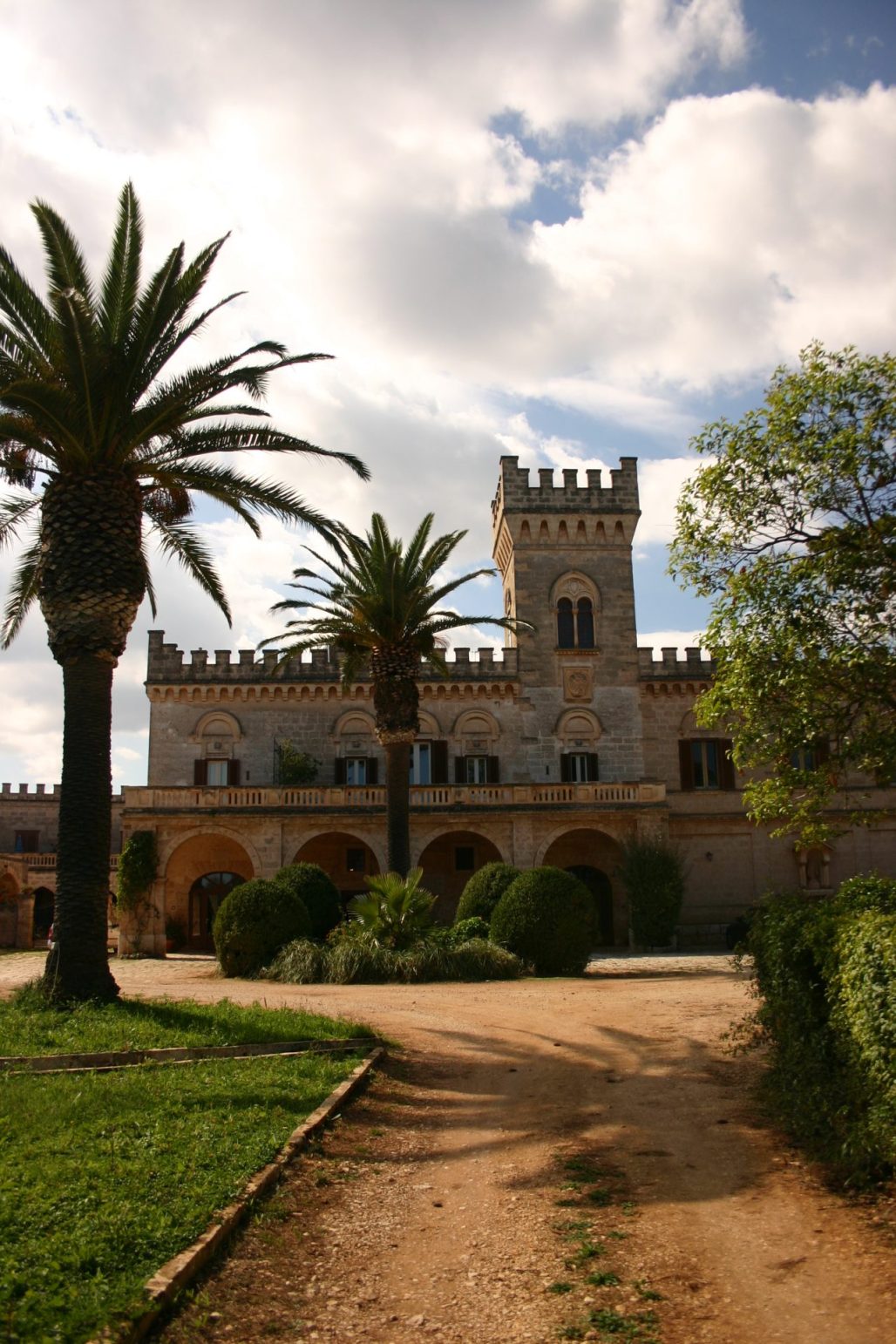
As explained by the Masseria’s current owner Filippo de Miccolis Angelini, the original landowner in the 17th century had to fortify his estate against invasion from Mediterranean pirates. The stone walls around the grounds enclosed the agricultural activity and protected its prized olive trees, which produced oil that was at the time very costly. Subsequently, the place fell nearly into ruin, only to be restored thirty years ago by the family Miccolis de Angelini into one of the most luxurious destinations for agritourism in Puglia.
In the 1980s, when Puglia was not as visited as is today, Filippo’s parents went to great lengths to turn the farmhouse into a destination. Undoubtedly they were trendsetters, who gave dignity back to the land. Their efforts were noticed by a journalist at the New York Times: the hotel appeared in a positive review on Puglia in 1993. Impressed with an incredible lunch, the journalist regretted she had not spent the entirety of her trip at the hotel. Masseria Salamina, she decided, “would be the first place we’d return to next time.”
Because the family has been running the business for years, they have been able to refine their development plans. With views over the surrounding olive groves, farmland, and a couple of stately palm trees, the atmosphere, now as it was then, is peaceful and remote. The restaurant serves authentic regional cuisine, and its comfortable rooms are modern and elegant. There is even a pool. In terms of agricultural production, the farm currently produces not only bottled extra-virgin olive oil, but also natural cosmetics, wheat, flour, legumes, tomato sauce, and jam. Their soaps and creams, jams and preserves, and olive oil in colorful packaging can be purchased on their website.
Crispiano
About fifteen kilometers inland, Crispiano is a small town that expresses another side of Puglia. Worth a visit for the distinct countryside estate and vineyard Masseria Amastuola alone, the region is deeply tied to rural life and the cultivation of wine and produce. Filippo Montanaro, the owner of the Amastuola wine resort, says the region is special because it is varied and rich, with the sea, the hills, cultural heritage cities, and old constructions like the Masseria.
Day 2: 28 Picturesque Miles
After breakfast, we will start off a leisurely bike ride in a nearby area and ride through the historic towns of Alberobello, Locorotondo, Cisternino, and Ostuni, finishing in Martina Franca for a total of 28 picturesque miles. We will take the opportunity to stroll through Martina Franca, Ostuni, and Alberobello and enjoy a picnic lunch. Followed by a visit to a cheese-producing Masseria to taste some of Puglia’s mouthwatering cheeses. The day will be nicely rounded off at a small family-owned restaurant specializing in regional dishes for an amazing dinner.
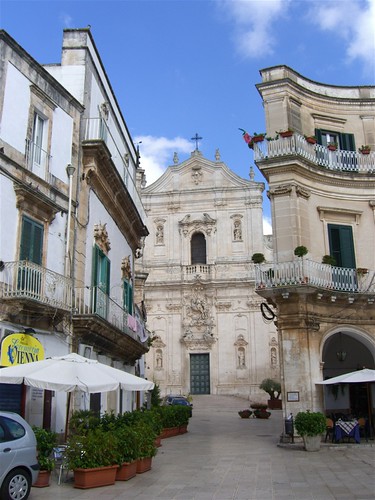
Alberobello: A UNESCO World Heritage Site
The first stop on our journey was Alberobello. Here, we admired the trulli – traditional white-washed limestone buildings that are uniquely found in this region of Italy. These striking structures have been a UNESCO World Heritage Site since 1996.
Locorotondo: A Town of Distinctive Charm
Our next stop was Locorotondo, known for its distinctive charm. With its alleyways lined with pink and yellow flowering plants, it’s easy to see why this is one of the most popular destinations in Puglia. The locals here were warm and welcoming, always eager to share their stories about the town’s long and interesting history.
Cisternino: An Ancient Village
Next, we visited Cisternino, an ancient village perched atop a hilltop. The cobblestone streets and traditional architecture lend a timeless beauty to this small town. We also tasted some of the local produce, including olives and cheese made from sheep’s milk.
Ostuni: The White City
Our next stop was Ostuni, nicknamed “The White City” due to its stunning whitewashed buildings. Its narrow streets were filled with quaint shops and lively bars, making it easy to spend hours here exploring.
Martina Franca: A Splendid Baroque Town
Finally, we arrived at our last destination, Martina Franca. This splendid baroque town is known for its impressive churches and historic monuments. After spending time admiring its grand façades, we finished our journey and enjoyed a well-deserved dinner in one of its many restaurants.
A Memorable Adventure
Overall, our bike ride through Puglia offered us a unique opportunity to experience these historic towns like never before. From Alberobello’s charming trulli to Martina Franca’s majestic churches, it was a truly memorable adventure.
Day 3: New Retreat, Local Ceramics & Soulful Dinner
Enjoyed a leisurely morning with breakfast and pool at our Masseria before checking out to transfer to our next hotel – a 16th-century farmhouse in the countryside of Manduria. In the afternoon, we will discover a nearby ceramics heaven and relish a soulful dinner and a wine tasting at a local organic winery.
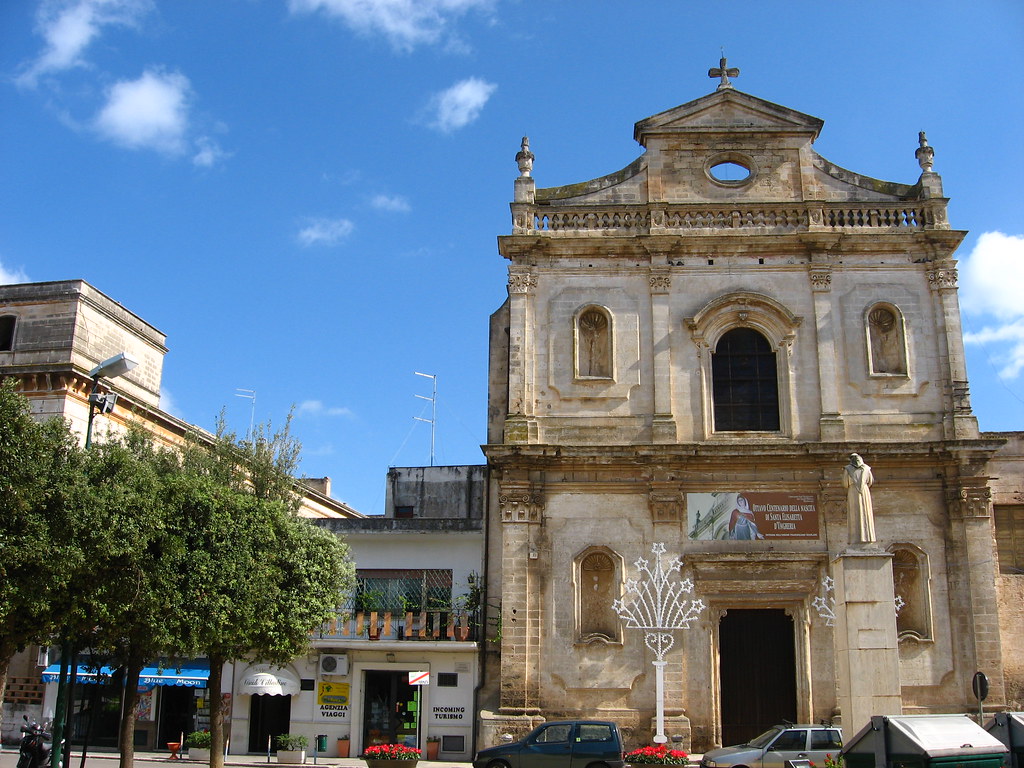
Day 4: Puglia’s Coastline
We started the day right by driving along the awe-inspiring coast of Puglia and stopping by a beautiful Grotta for a few mandatory pictures and an optional dip. We had lunch in the heart of the historic town of Otranto. We then chose a scenic bike ride down to the southernmost tip of the peninsula and then wined and dined ourselves into oblivion at a beautiful and uniquely designed vineyard.
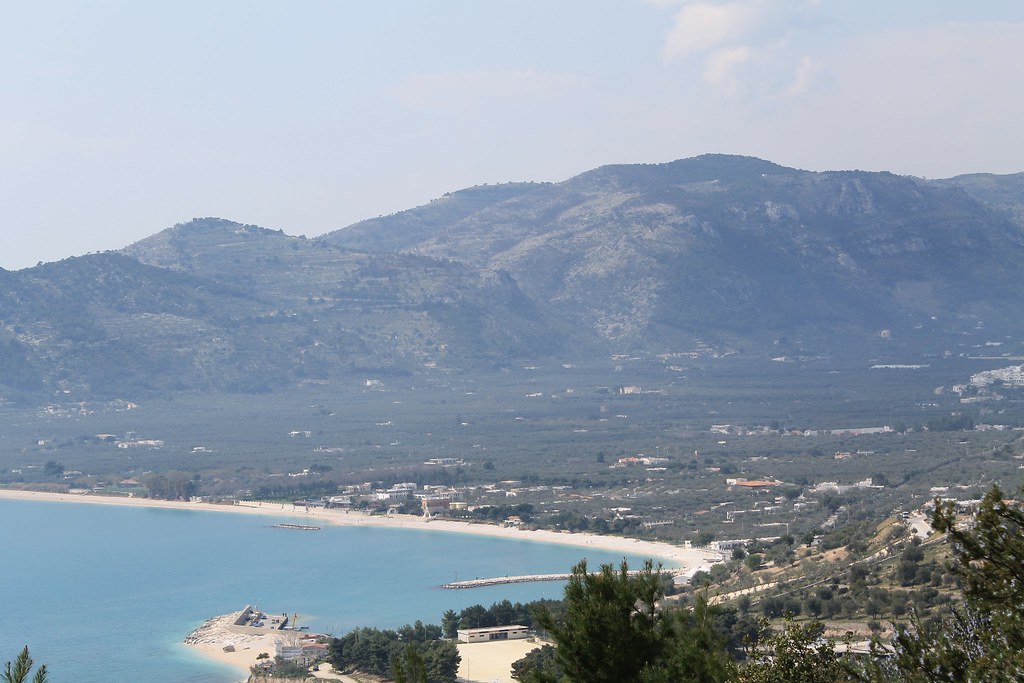
With the sparkling blue waters of the Adriatic Sea in view, we made sure to pause for some picturesque snaps at Grotta, an incredible sea cave on the shore.
A Tasty Tour Through Otranto
Following our coastal adventure, we headed to the town of Otranto. It was here that we enjoyed a scrumptious meal while drinking in the rich history of this unique Italian destination. We delighted in exploring the old fortress walls and admiring the magnificent 900-year-old cathedral.
Biking Through Heaven
From Otranto, we hopped onto bikes and pedaled down toward Santa Maria di Leuca, the southernmost tip of the Italian peninsula. The ride was unforgettable, allowing us to take in unbridled beauty from every angle as we followed roads winding through olive groves and past quaint little villages.
Wining and Dining at its Finest
No trip to Puglia is complete without indulging in some of its renowned wines! Our final stop took us to a small winery near Gallipoli, where we sampled local delicacies and tasted some exquisite wines with views of sun-soaked vineyards surrounding us. By the end of the day, we were fully contented with gastronomical bliss.
Our journey through Puglia proved to be unbeatable, offering a perfect blend of culture, cuisine, and exploration. It was a day of discovery that will remain etched in our memories for years to come.
Day 5: Visit to Matera & Horseback Riding
After breakfast, we will make our way to the stunning historic city of Matera and take our time to explore this UNESCO World Heritage gem and 2019 European Capital of Culture. We will catch a first-class view of the city at sunset while horseback riding the nearby hills and visit a very special and festive place for a delightful local feast.
Matera
Matera is the third most ancient city in the world, but until recently, it was a city that was “forgotten”. However, in the last twenty-five years or so, Matera has been experiencing something of a resurgence. In 1993, it was appointed a UNESCO World Site, and over the next twenty years, it saw a steady rise in tourism. Still yet, in 2019, it is set to be the fourth European Capital of Culture of the Italian denomination, following Florence in 1986, Bologna in 2000, and Genoa in 2004.
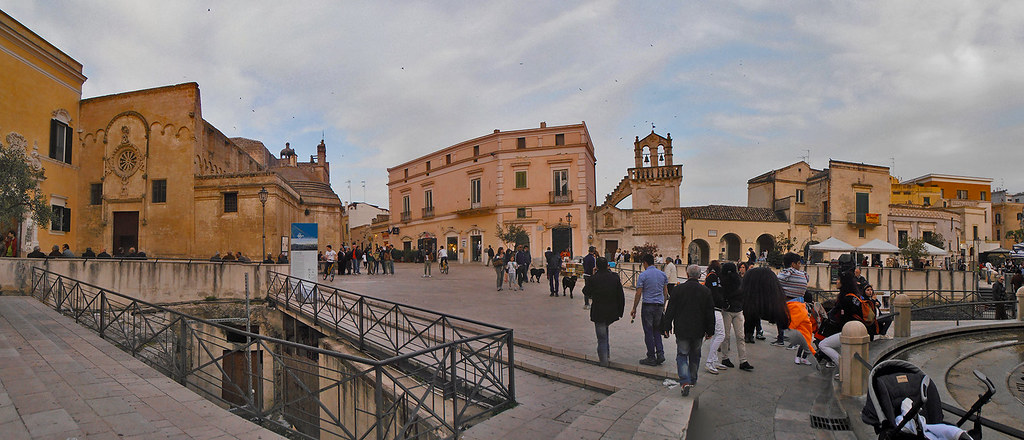
Sassi
Matera’s ancient Sassi are Paleolithic rock, initially carved and inhabited by civilizations during the Bronze Age, then by monastic orders in the Middle Ages, and by peasants of subsequent civilizations. In the Civita, the oldest part of Matera made entirely of prehistoric cave dwellings, Kihlgren and a team of archeologists, artisans, architects, and builders, converted them into rooms. The result is Sextantio Le Grotte della Civita, a highly researched hotel with twenty rooms, a reception area, and a communal dining area that once served as a crypt. The idea behind the rooms is not to be trendy but rather timeless, focused on the universal, ancestral roots and emotions that such dwellings evoked then and still do.
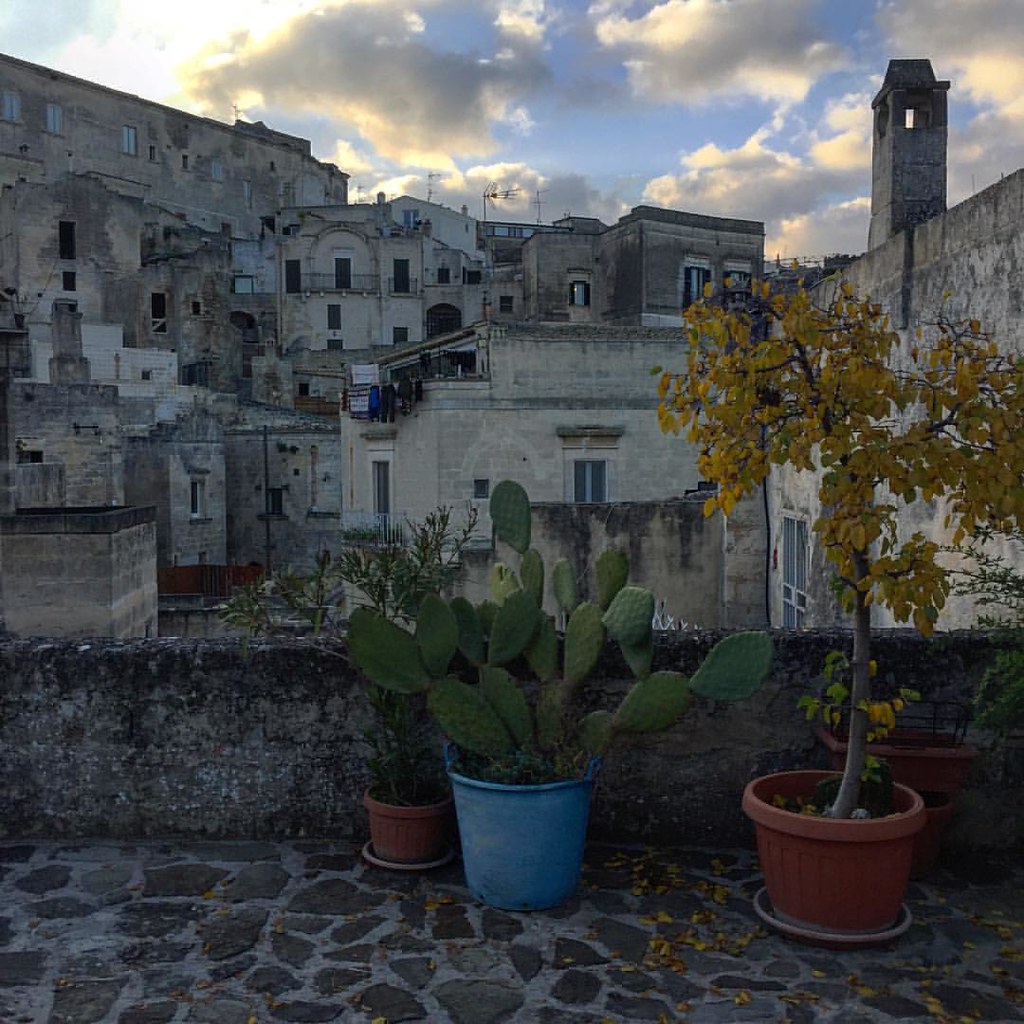
Day 6: Organic Winery Visit
We ended our stay in Matera on a high note with a rose tasting at the beautiful organic winery of Taurino. We indulged in some of their delicious varieties while admiring the stunning beauty of the countryside. Afterward, it was sadly and reluctantly time to say goodbye and see us again next year.
A Perfect Final Breakfast
To savor one last moment in Matera, we had a breakfast fit for kings at the gorgeous restaurant of Capricci di Serafino. The food was exquisite and the attentive staff was kind enough to take plenty of pictures for us so we can remember this amazing experience.
Onwards to Bari
The final leg of our journey was a transfer to Bari, where we said goodbye to Matera for good. However, as we left with heavy hearts, we were comforted by the knowledge that we will return someday and relive the beauty of Matera over and over again.
Final Word
From the stunning Adriatic coastline to Italy’s mysterious and beautiful Basilicata region, a journey through Puglia is sure to delight the senses. Every day you can experience firsthand how passionate local artisans, chefs, and foragers create their signature dishes from humble ingredients, or explore the markets where they source them. There are artisanal olive mills and vineyards to discover as well, plus a unique opportunity to savor some of the best wines on a traditional Lampara boat. Best of all, you’ll take home experiences that will last a lifetime, plus newfound knowledge about this unforgettable region. Puglia is truly a destination like no other – come explore it for yourself!
